One song made Umair Jaswal quit 'partying' and hit the prayer mat
His journey on the path of repentance involves a broken heart, death of a guru and much more

One song made Umair Jaswal quit 'partying' and hit the prayer mat
The haunting part about the past is not just what people did to you but also what you did to people. It is guilt and the coping mechanisms that try to keep it at bay that make one want to sleep with a clearer head. For those who have watched Bojack Horseman, it is also what makes every moment in the show so relatable. The 30s hit you like a reality check you never asked for.
Umair Jaswal may not have starred in a famous ’90s TV show, but his struggle with fame and privilege is riddled with not unheard of existential queries too. Some of them, by his own admission, drove him down such a dark path that the light at the end of the tunnel appeared more like an approaching train.
“Intoxication is an understatement,” he said, leaning back on his armchair with a sigh. “I was indulging in everything under the sun and killing myself from the inside.”
High on the sky
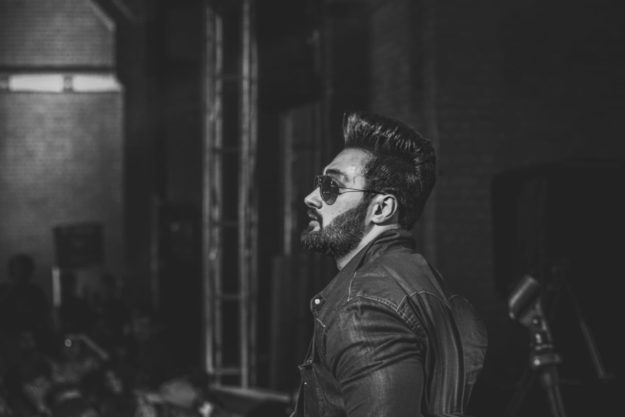
Jaswal’s fame skyrocketed in 2015 with release of Sammi Meri Waar in Coke Studio 8. The folk-pop duet co-performed by Quratulain Balouch was an instant hit on YouTube and dance practices. The video that currently has 41.5 million views on YouTube was also taken over by the meme and GIF army that made the most of Jaswal’s pelvic shakes and screaming. His Facebook following increased by 160,000 and a rockstar lifestyle followed.
“It was a complete rock and roll life. The life full of partying as we say it. The life of a young rock musician who has a fair amount of fame and gets to travel and chill with a lot of new people,” Jaswal recalled.
As he basked in the afterglow of his career’s highest point, he endorsed brands and worked closely with the film and TV industry. The once frontman of Qayaas, a band few madly followed and many didn’t know existed, was now recognisable on the street. But all it takes is a single wrong step to nosedive from your peak. Bam! And you’re back to being a nobody.
“There’s a fair chance any individual would get through this race like a hero and there’s an equal chance that he will crash and burn,” Jaswal reflected. “To the extent that you end up making hasty decisions which turn into failures, and eventually everything inside and outside just becomes very toxic and unbearable.”
Through both words and body language, the rock vocalist made no attempt to hide his contempt for showbiz. “Everybody hates everybody in this industry, even all those who talk fondly about each other on TV. They hate each other to the core and to keep up with the tide, you keep up with the toxicity.”
He may have found refuge in intoxication, but Jaswal now thinks others messing with your head is more dangerous than any harm you cause yourself while seeking escape. “You surround yourself with things that are not good for you. Intoxicants are really harmful but the worst kind of intoxication was the negativity I had become part of. It pushes you away from anything positive.”
For the past year and a half Jaswal has been completely clean – no drugs or other intoxicants, not even cigarettes. While he still goes out to parties to meet people, he tries to be home before others are even tipsy.
According to him, there are three milestones in a journey for self-betterment full of false starts: a failed relationship, the death of Soundgarden and Audioslave frontman Chris Cornell, and a song. All three played their part in sparking a transformation that made Jaswal put an Isha prayer reminder on his phone, which incidentally beeped during the interview.
“I don’t want to brag but I have started praying five times a day. When I’m restless, I also wake up and offer Tahajjud,” he said with a smile. “I don’t judge anyone who finds escape in drugs or other substances. That’s their process, even if I would never encourage it.
“I have seen people with long religious beards who pray five times a day reveal themselves to be the ugliest characters. I have met those who like to ‘party’ turn out to be the kindest souls and vice versa. Nothing out there is a passport to perfection,” he elaborated.
Made out of sand
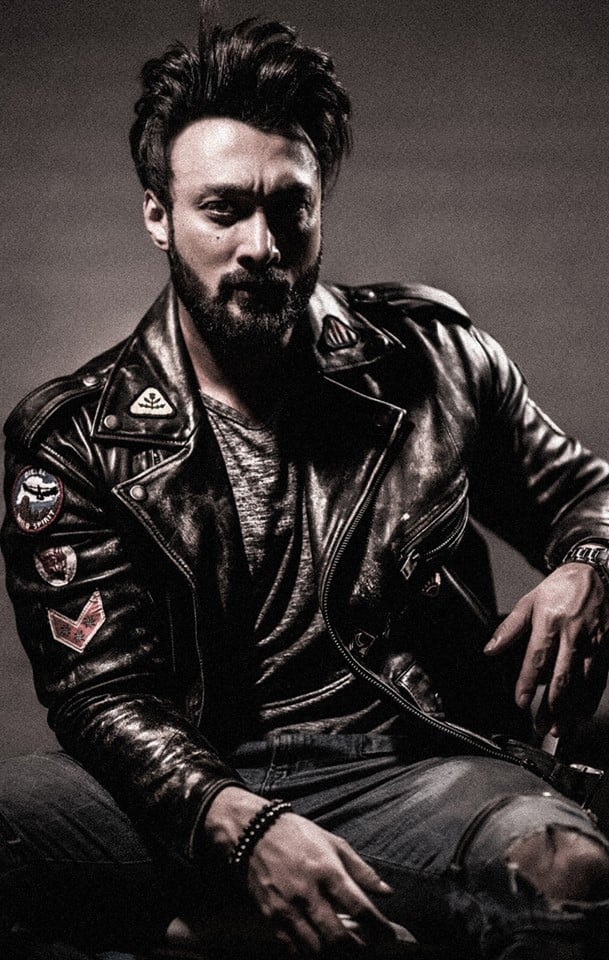 PHOTO:FILE
PHOTO:FILEIf one had to pick a Coke Studio song for sheer impact and innovation, then Shuja Haider’s Khaaki Banda will surely make the cut. The arrangement, composition, singing and additional lyrics fit Bulleh Shah’s poetry seamlessly enough to break new ground in the show’s history.
Performed by Jaswal and Ahmed Jehanzaib, it became an elixir of healing for both of them, the former in particular. If Sammi Meri Waar pushed him beyond the sky then Khaaki Banda and another unreleased solo, Rabba, brought him back to the ground.
Your proud wilfulness is driven by nothing but conceit
Your never-ending religious debates failed to create a deeper understanding
You spread people into conflicting camps, but failed to spread real knowledge
All you did was sow seeds of dissension among friends and brothers
The lines stayed with Jaswal long after they had stopped echoing around the studio. At a time when he felt mired in the toxicity around him, the song turned into a helping hand that pulled him out.
“Life after Khaaki Banda has been a humbling experience,” he said. “It brought me closer to God and took me away from all negativity and discontent. I became more aware of my privilege and the temporariness of our existence.”
Jaswal has become softer and more sensitive. Spending time alone on the prayer mat has given him space for introspection, which he felt was lacking. “There’s no rush in life anymore and that’s a privilege only a few can afford and sometimes, even those who can, don’t. To be actually content with who you are is a blessing that you have to strive for and I am glad, I did.”
In a world mediatised round the clock, it is harder than ever to dodge the limelight. This is both a blessing and a curse that the pop stars of yore never encountered. In their time, bedroom incidents were confined to the bedroom and fans couldn’t ruin your day and sometimes your life with just an emoji. Even so, one thing that binds them to their present-day counterparts is a pattern of choosing repentance whenever the spectre of failure or irrelevance appears.
In Jaswal’s case, his career may have peaked for the public at large with Sammi Meri Waar, but he doesn’t see it that way. Maybe it is his way of preempting a career slump or maybe it isn’t.
“I don’t consider Sammi Meri Waar the high-point of my career because it was not my song. My peak was my original work, my solo album and more originals that are on the way,” he explained. “As far as relevance is concerned, people keep forgetting that I have done two more seasons of Coke Studio along with my solo stuff since Sammi Meri Waar. When people come to my concert, they also listen to 13 other songs so...”
Grandmaster Cornell takes his own life
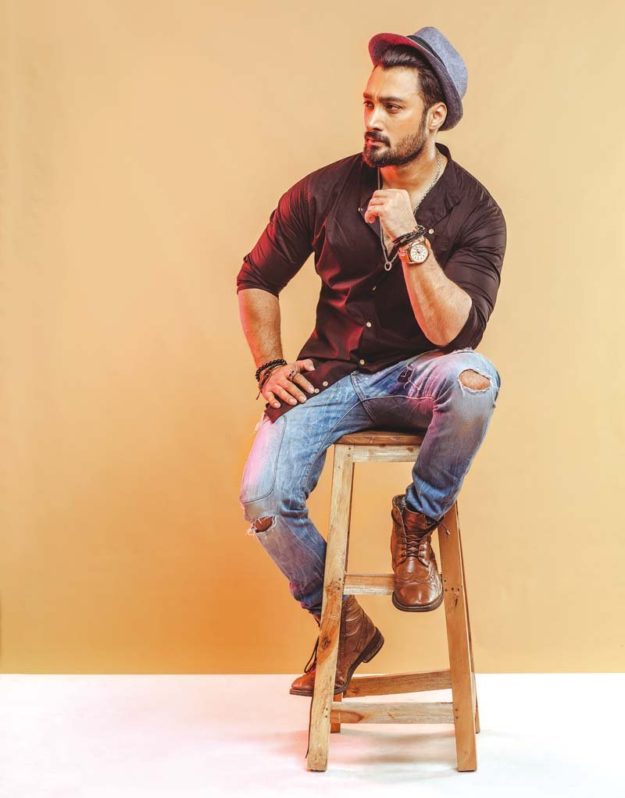 PHOTO: FILE
PHOTO: FILEKhaaki Banda may have heralded a turning point for Jaswal, but his lifestyle change didn’t occur overnight. Among the myriad incidents that compelled him to reflect on the song’s message, Chris Cornell’s suicide was very much the decisive one.
“That guy had come out victorious after fighting everything in life. A broken marriage, depression, addiction, career challenges, he overcame it all and but still ended up killing himself. Let that sink in,” Jaswal reflected.
As a kid, the former Qayaas frontman would train his vocals listening to Cornell’s singing and mimicking his vocal technique. As an adult, he gained strength from his resilience and commitment to fight the odds. Seven seas apart, Cornell was Jaswal’s guru, Gandalf and grandmaster combined. But for the first time in his life, the guru disappointed him.
“I was already in such a terrible headspace back then that after listening about Chris Cornell’s death I was willing to give up,” he recalled. “I kept wondering if he couldn’t make it, how can I? He was one of the strongest people I knew about but the dark side still got the better of him.”
For Jaswal, a supportive family and a circle of trustworthy friends helped strengthen his faith in God and in himself. “I knew I had to find a different way out of this crisis and I was sure that God was watching out for me and that was good enough.”
And there’s always a broken heart
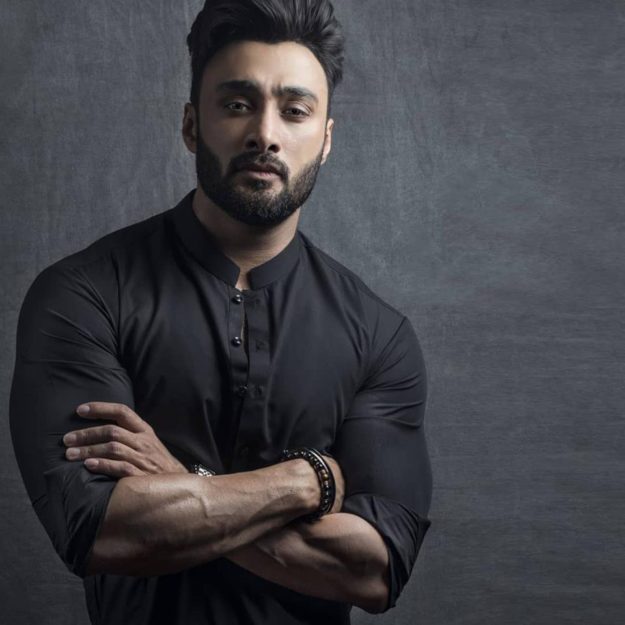
It may be cliché but like any hit film in this part of the world, Jaswal’s journey towards light is could not have taken place without a broken heart.
“I have been terrible at maintaining relationships,” he confessed. “I was mercurial, lacked patience and was always on the cusp of disengaging.” Looking back, he now sees clearly everything he could have done to salvage a romance that both parties wanted to flourish. If only he had not been who he was back then.
Jaswal’s latest song for Coke Studio 12 Chal Raha Hoon Mae revolves around carrying the burden of the past as you move on in life. “Even if you’re not with me, I go on, I fade, I burn,” says the song as it comes to a grand but minimalistic end, suggesting quite overtly that Jaswal is somewhat still stuck in the pain of the past. “Of course,” he admitted, “But you know all of this, the journey I have had since Khaaki Banda made me reevaluate my position in life and all that I was doing wrong to push people away.”
Having said that, Jaswal is currently in a healthy relationship with a woman he truly admires.
Best boy Hamza Ali Abbasi
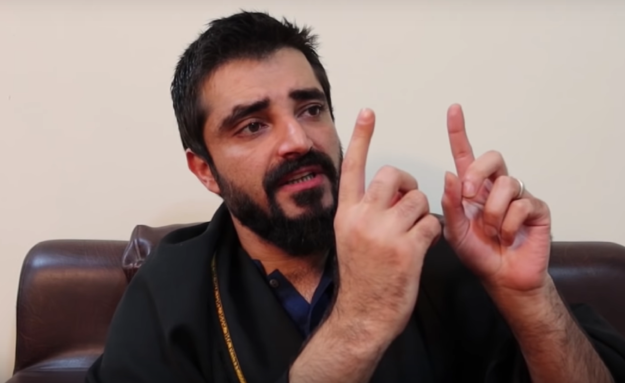
Another relationship that Jaswal is proud of is the one he cultivated with his best buddy, actor Hamza Ali Abbasi. They go back a long way and this brotherhood has only grown strong over the years. So strong that sometimes both of them mirror each other in real-life decisions.
They started their careers at almost the same time and they have both struggled with a ‘rockstar lifestyle’ only to find salvation in God and Islam. So much so that Jaswal too almost became an atheist like his friend Abbasi, who made a whole video about his religious transformation. Perhaps they even coordinate on what to wear over the phone?
“He’s my best buddy but there’s nothing like that,” Jaswal said with a laugh. “In fact, I and all of his close friends made so much fun of his platonic love bit that you won’t believe. I just wish he’d listen to us once and draft a Facebook post and publish it the next morning but he just won't. That’s Hamza Ali Abbasi for you”
Their struggle with atheism and intoxication is something that they have often discussed with each other but it would be difficult to pinpoint who inspired who. Perhaps Maulana Tariq Jamil was involved at some point or any other missionary who has been dunking these Islamabadi artists into buckets of holy water?
“Trust me, there’s no Pir or Maulana like that,” Jaswal laughed again. “It’s just that we both had almost given up on Islam and religion as a whole and then went through such a rough time that our spiritual transformation came into play quite naturally. We never coordinated this but we are equally proud of each other.”
Have something to add to the story? Share it in the comments below.


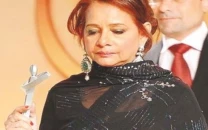


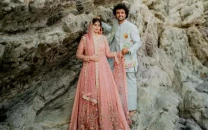













COMMENTS
Comments are moderated and generally will be posted if they are on-topic and not abusive.
For more information, please see our Comments FAQ